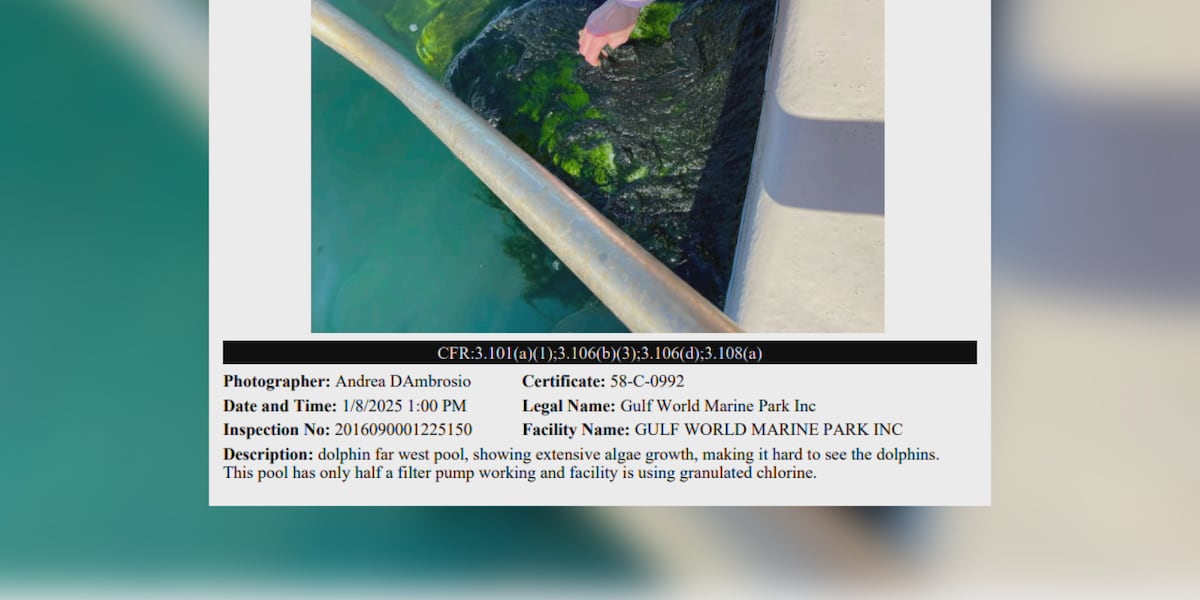
Lawmakers and law enforcement sounding alarm on Gulf World
- 25.03.2025 04:17
- wjhg.com
- Keywords: Dolphin Deaths, Water Quality Issues
Lawmakers and law enforcement are raising concerns about Gulf World marine park after multiple dolphin deaths, including a 14-year-old named Jett who died from acute brain damage due to poor water quality. Authorities have tried to investigate but were denied access by the park and its owner, Dolphin Company.